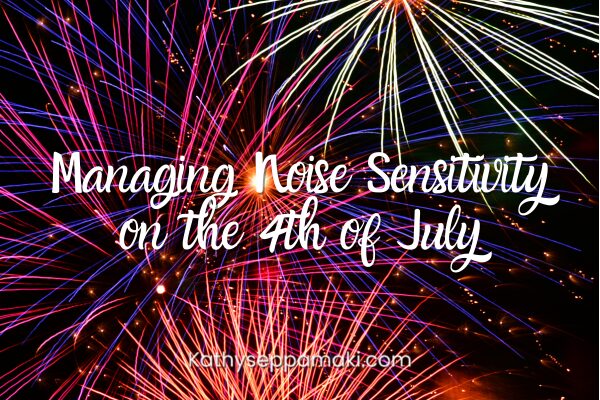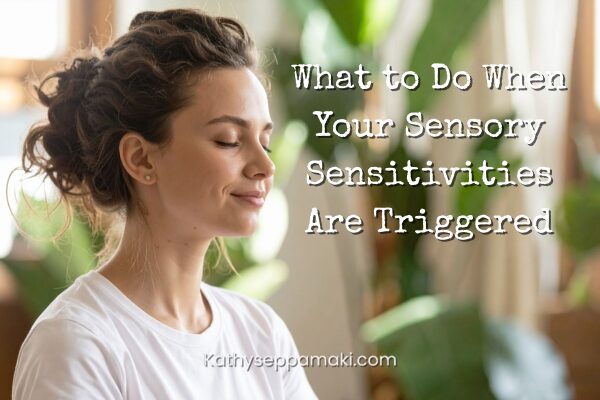Do you deal with noise sensitivity? Days like the 4th of July can offer unique challenges.
For many, the 4th of July is a day filled with celebration, fireworks, and festive gatherings. But for individuals with ADHD and autism, it can also be a source of intense sensory overload, especially when it comes to noise.
Fireworks have always been intense for me. Now, don’t get me wrong, I love to watch a good fireworks display, as long as I can cover my ears to dull the sound. But as the 4th of July rolls around, many people in my neighborhood shoot off fireworks in the evening for well more than a week. And that can be too much!
Understanding noise Sensitivity in ADHD and autism
Noise sensitivity, or auditory hypersensitivity, is a common trait in both ADHD and autism. It means that certain sounds, especially loud, sudden, or overlapping ones, can feel overwhelming, distressing, or even physically painful. Fireworks, parades, crowds, music, and unexpected booms can all trigger heightened stress responses.
People with ADHD may find it hard to filter out background noise, making it difficult to focus or stay regulated in loud environments. Those with autism may experience a fight-or-flight reaction to unexpected noises, leading to meltdowns, shutdowns, or anxiety.
The 4th of July, with its explosive sounds and sensory-rich environments, can be especially challenging.
Tips to manage noise sensitivity on the 4th of July
If you or someone you love experiences noise sensitivity, here are some ways to make Independence Day more manageable:
Prepare in advance
Let yourself or your child know what to expect. Talk through the schedule, explain when fireworks might happen, and create a plan for where and how to take breaks if things get overwhelming.
Use noise-reducing tools
-
Noise-canceling headphones or earplugs can be game-changers.
-
Listening to calming music or white noise through headphones can help block out triggering sounds.
-
For kids, there are fun earmuffs designed specifically for sensory protection.
Choose a safe space
If you attend a gathering, make sure there’s a quiet place nearby where you or your child can retreat when needed. At home, set up a cozy sensory-safe zone with soft lighting, weighted blankets, and comfort items.
Watch fireworks from a distance
Consider watching from indoors or from a car. This way, you can enjoy the visuals while reducing the intensity of the sound.
Celebrate your way
It’s okay to opt out of the traditional celebrations altogether. Maybe your ideal 4th of July includes a quiet night at home, a favorite movie, and some glow sticks or sparklers in the backyard. That counts, too.
Communicate with others
If you’re attending a gathering, let hosts or family members know about your needs or your child’s. Most people want to be supportive; they just may not be aware of how overwhelming these events can be.
Plan for recovery
Even with precautions, sensory overload can happen. Give yourself or your loved one space to decompress afterward. Hydration, rest, and quiet time can help the nervous system reset.
A final word
If loud celebrations make you anxious or overstimulated, you are not alone. Sensory differences are real, valid, and deserve compassion, not shame. You don’t have to force yourself to enjoy the 4th of July the same way others do. It’s okay to set boundaries, honor your needs, and find ways to celebrate that feel safe and supportive.
Whether you enjoy the sparkle of fireworks or the comfort of quiet, you deserve to feel at peace this holiday.
Happy (and gentle) 4th of July.


